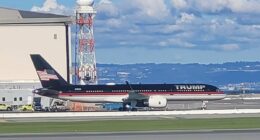Share this @internewscast.com

Australians are surprisingly swearing less online than other countries but researchers suspect the nation is saving it for face-to-face interactions.
The University of Queensland study examined more than 1.7 billion words of online content across 20 English-speaking countries, specifically looking for 597 vulgar words.
Using computational methods with linguistics, researchers narrowed down which country was swearing the most online, looking at the frequency of vulgar words.
Even though Australians hold a broad reputation for swearing regularly, the US came out on top for online swearing, followed by the UK.
“Some may find it disappointing,” said Martin Schweinberger, lead researcher from the university’s school of languages and cultures.
“Australians really see vulgarity, swearing and slang as part of our culture — we’re very invested in it.”
Swear words are normalised in Australia’s everyday language with even tourism campaigns featuring them, including the famed slogan “So where the bloody hell are you?” asked by model Lara Bingle.
Canada barred the ad from being shown during family television programs over its use of the word hell. The UK barred it from TV and billboards over the word bloody (the ad was later allowed to be shown after 9pm) and the ad was censored in Singapore.
Victoria’s Transport Accident Commission also used a road safety campaign with the phrase: “If you drink, then drive, you’re a bloody idiot”.
Schweinberger proposed that Australia might have missed out on claiming the top spot for online profanities because Australians tend to be more reserved in their online communication, opting instead to use profanity in face-to-face interactions.
“Our study suggests Australians might still live up to our popular image of having unusually rich and inventive ‘bad’ language,” he said.
“Especially thanks to our very public and colourful airing of swear words — this is something that’s often remarked upon by overseas visitors to the country.”
Schweinberger said this is the first large-scale analysis of its kind to determine how offensive language was used in English-speaking countries.
The research was published in science journal Lingua.










